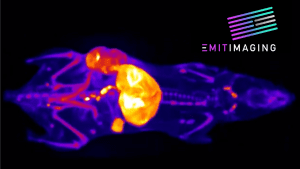
Is Maryland Becoming a Hub for Bacteriophage Technologies?
The Bacteriophage (Phage) Therapy (PT) market is growing rapidly in the U.S. The rise of antibiotic resistant bacteria and multidrug-resistant bacteria (MDRs) across the globe has increased the value and industry acceptance of a phage approach, which can help combat bacteria that cannot be effectively treated by antibiotics. What’s more, the phage modality is a great fit for targeted personalized medicine approaches.
As the U.S. phage market has expanded, Maryland has quietly emerged as a phage therapy micro-hub. Several global-leading phage companies, government research organizations, top phage scientists, and a handful of emerging PT organizations currently call Maryland home.
Maryland is home to leading biopharma PT companies Intralytix and Adaptive Phage Therapeutics (APT). The state also has a host of phage research organizations, including the University of Maryland’s Institute for Biotechnology and Bioscience Research (IBBR), the University of Maryland, Baltimore County (UMBC) and their student Phage Hunters, the Phage Science Division at the Naval Medical Research Center and the Walter Reed Army Institute of Research (WRAIR). What’s more, the support infrastructure for the phage hub is growing, as evidenced by diagnostic companies with phage diagnostic testing capabilities like Integrated Pharma Services (IPS).
PT, or bacteriophage therapy, essentially uses viruses to treat bacterial infections. Bacteriophages are the most prevalent microorganisms on the globe and are being deployed by biopharma companies to create technologies and platforms that can kill off harmful bacteria in a highly targeted manner that is both safe and effective.
When antibiotics fail to help a patient, phages can often kill drug resistant or MDR bacterial infections. Phages only attack bacteria, making them a highly targeted therapeutic tool that is harmless to people. Ultimately, phages inject bacteria with RNA or DNA; the phages replicate within the bacteria eventually breaking the bacteria apart and releasing the new bacteriophages, effectively killing the bacteria.
The word bacteriophage literally means “virus eater.”
Let’s take a closer look at these organizations that are part of a growing PT micro-hub located in Maryland.

Adaptive Phage Therapeutics (APT), Gaithersburg, Maryland
APT of Gaithersburg, Maryland is a global leader in phage research and development and is led by Co-founder and CSO Dr. Carl C. Merril and his son Greg Merril, who is a Co-Founder and the company’s CEO.
Dr. Merril is a world-renowned scientist and Emeritus Scientist at the National Institutes of Health (NIH). His son, Greg, is a serial entrepreneur who has led more than 20 financing transactions that have raised more than $100M. He has been the founding CEO of three VC-backed health and medical product companies: Brain Sentry, Inc.; Interaction Laboratories; and Immersion Medical, Inc. While with HT Medical Systems he led the company through a $42M merger with Immersion Corp. Merrill was named a Regional Ernst & Young Entrepreneur of the Year in 2007.
According to APT’s website, “In 2003, as multi-drug resistant (MDR) bacteria was starting to pose a serious international health risk, National Institutes of Health (NIH) scientist Carl R. Merril, MD, published a pivotal article that outlined prior limitations of phage therapy and suggested concepts that have emerged as the modern approach.” In 2016, the phage therapy approach developed by Dr. Merril, and supported by the U.S. Navy, saved the life of Tom Patterson, a critically ill A. baumannii patient. You can learn more about this remarkable, life-saving story here.
APT’s core asset is a large and continually expanding phage library (PhageBank®) deployed with a companion diagnostic to achieve rapid response and cost-effective therapy for otherwise recalcitrant bacterial infections. The technology was developed by the biodefense program of the U.S. Department of Defense (DOD). APT acquired the world-wide exclusive commercial rights in 2017. Under the FDA emergency Investigational New Drug (eIND) allowance, PhageBank therapy has been used to treat approximately 20 critically ill patients in which standard-of-care antibiotics have failed.
Most recently, APT received $9.8M in funding from the DOD to develop a phage-based COVID-19 vaccine that is the only phage-based vaccine candidate that will enter Phase I trials in 2020. APT also recently secured $1.75M from the Mayo Clinic as part of a $7M convertible note financing round.
Intralytix, Columbia, Maryland
Founded in 1998 by Dr. John Glenn Morris, Jr., Dr. Alexander “Sandro” Sulakvelidze, the company’s Chief Science Officer, and other business partners, Intralytix is a biotechnology company focused on the discovery, production, and marketing of bacteriophage-based products to control bacterial pathogens in environmental, food processing and medical settings.
Today, Intralytix is the largest food safety phage company in the world and sits on the precipice of substantial growth and success. 23 years of building unrivaled bacteriophage expertise, developing and securing 15 issued patents, and being one of two phage companies with sales revenue in the U.S. have put this Columbia, Maryland-based company in a position to harness several positive macro-market forces to fuel its expansion.
Increased food safety regulatory pressure, the growing market for organic, non-chemically treated foods, and the continued rise of drug resistant bacteria have intersected with a rapidly emerging microbiome field and personalized medicine to create advantageous market conditions for Intralytix.
In May 2020, the company was awarded a multi-million dollar grant from the National Institute of Health’s (NIH) National Institute of Allergy and Infectious Diseases (NIAID) for the clinical development of its bacteriophage therapy preparation for managing infections caused by the bacterial pathogen Shigella. Shigellosis, according to the Center for Disease Control (CDC), is caused by the Shigella bacteria and impacts approximately 125M people globally each year with the “…majority of the associated 14,000 deaths occurring in young children,” according to Dr. Jennifer Schwartz, Director of Clinical Development at Intralytix.
Intralytix’s Shigella phage therapy will move into clinical trials in 2021. Phage therapy for Shigella is currently approved for use in Asia and Eastern Europe but is not yet approved in the U.S. If approved, the company’s phage therapy for Shigella could yield significant public health benefits and pave the way for use in other indications like Cholera, for example.
As of last year, Intralytix has the most FDA-approved phage food safety products with four and a fifth approval is expected in 2021. Over the last five years, Intralytix has seen a 1600% increase in sales, as the phage approach is becoming more widely accepted by companies.

The University of Maryland’s (UMD) Institute for Biotechnology and Bioscience Research (IBBR), College Park, Maryland
Established in 2010, IBBR emerged from the Centers for Advanced Research in Biotechnology (CARB), which was founded in 1984, and the Center for Biosystems Research (CBR). CARB was a partnership among UMD, the National Institutes of Standards and Technology (NIST), and the Montgomery County government. CBR was founded on the UMD campus in 1987.
In 2019, IBBR announced that it was collaborating with Integrated BioTherapeutics to develop a novel, phage-based approach to treating infectious disease. At the time, the collaboration had just received a $3M Phase II Small Business Technology Transfer (STTR) award from the National Institutes of Health (NIH).
IBBR Fellow and Associate Professor, Department of Veterinary Medicine, University of Maryland, College Park, Dr. Daniel Nelson leads the collaboration with Integrated BioTherapeutics and he and his team are researching additional phage-influenced therapies as well.
This research, according to Nelson, “…utilizes phage-encoded enzymes rather than the whole phage, so it is a parallel approach to phage therapy rather than phage therapy itself.”
In essence, Nelson’s work currently seeks to burst or lyse the bacteria without the use of the bacteriophage.
Nelson stated, “If we add an endolysin to a susceptible bacterial cell, it will lyse the cell wall, and without the rigid cell wall, the bacteria will explode due to the internal pressure within the cell. No need for infection by the bacteriophage. The endolysin enzyme itself will cause the bacterial cell to explode and die.”
“Similar to phage therapy, endolysins are specific for particular species of bacteria, so all the targeting killing features are retained. However, unlike phage therapy, resistance does not appear to be an issue, there is no need for a cocktail approach, and from a regulatory point of view, approval of an enzyme is much more straightforward than approval of a cocktail of bacteriophage, each composed of dozens of individual proteins as well as DNA and/or RNA. There are currently several biotech/pharmaceutical companies with endolysins in late stage clinical trials in the US and one is already available in Europe,” he added.
IBBR’s mission is to translate scientific breakthroughs into real world solutions. With its Integrated BioTherapeutics collaboration and other candidate therapeutics for Staphylococcus aureus, Strep, and Cutibacterium (acne) based on Nelson’s endolysin approach , the organization is helping grow the BHCR phage micro-hub.

Integrated Pharma Services (IPS), Frederick, Maryland
IPS is an integrated Contract Research Organization (CRO) located in Frederick, Maryland that is an award-winning, trusted partner for developing and testing diagnostics and therapeutics.
IPS is led by President and Chief Science Officer Dr. Mina Izadjoo who is also President Emeritus of the Washington Academy of Sciences and a serial entrepreneur. IPS conducts R&D and offers a wide range of diagnostic and therapeutic services, including bacteriophage testing and R&D, as well as customized services.
“Non-antibiotic treatment modalities such as bacteriophage therapies are urgently needed for treating infections caused by antibiotic resistant pathogens. Currently, there is a growing interest in development of new and effective phage therapies for treatment of drug-resistant bacterial infections,” stated Izadjoo. “Integrated Pharma Services’ scientists with over 70 yrs of combined research experience in infectious diseases have been involved in Bacteriophage research for several years. IPS has a library of therapeutic phages for various infectious diseases.”
She added, “IPS has been isolating, conducting efficacy testing, and has used phages for development of therapeutic recombinant-proteins. In addition, we have developed various methodologies for evaluating the effect of bacteriophages on Biofilms.”
CROs with IPS’ phage research and testing expertise are absolutely critical to the support and continued growth of the BHCR phage micro-hub.
University of Maryland, Baltimore County (UMBC), Baltimore, Maryland
The Phage Hunters of UMBC are yet another phage research program in the BHCR. The Phage Hunters are part of a larger phage research initiative called the Sea-Phages (Science Education Alliance-Phage Hunters Advancing Genomics and Evolutionary Science) Program. UMBC was one of the first institutions to launch this program in 2008.
Since that time, approximately 1,000 UMBC undergraduate students have participated in this program, and “…have isolated, characterized, and archived 206 Actinobacteriophages and 314 Bacillus phages,” according to the Phage Hunter’s webpage. The Phage Hunters have also sequenced 63 phages and submitted them to the GenBank.
The Sea-Phage program overall includes 150 participating institutions with some 6,000 undergraduate researchers in the program annually. The Sea-Phage program in total has collected approximately 17,000 phages.
The Phage Hunters program is a two course series focused on genetics and bioinformatics and is a key workforce development program in the BHCR. Five Phage Hunter alumni, at one point in time, were on the staff of Adaptive Phage Therapeutics. Like IPS’ role as CRO with phage capabilities, workforce development programs like UMBC’s Phage Hunters are critical to the BCHR phage hub’s future growth.


Walter Reed Army Institute of Research Center (WRAIR), Silver Spring, Maryland; U.S. Naval Medical Research Center (NMRC), Silver Spring and Frederick, Maryland
WRAIR and NMRC each have developed and strong bacteriophage therapeutics programs. The two research entities recently collaborated to develop personalized bacteriophage cocktails for therapeutic purposes, including wound care. This collaboration involved Dr. Mikeljon Nikolich, Chief, Bacteriophage Therapeutics & Emerging Bacterial Infections, Chief, Bacteriophage Therapeutics at Walter Reed Army Institute of Research, Dr. Damon Ellison; and Biswajit Biswas, Chief, NMRC’s Phage Science Division, Department of Genomics and Bioinformatics at Naval Medical Research Center.
This phage collaboration falls within the broader WRAIR initiative to combat MDRs using bacteriophages as part of the organization’s Multidrug Resistant Organism Repository and Surveillance Network (MRSN) that sits within the WRAIR’s Bacterial Diseases Branch (BDB). The BDB services the Army, Navy, and the Air Force. The MRSN is the only bacteria Department of Defence (DoD) repository of MDR bacterial samples; the repository currently houses some 82,000 samples and receives 800-1,200 new samples monthly.
The WRAIR has had great success in phage research and development. According to a WRAIR publication, “WRAIR investigators have successfully compiled panels of potent phages to treat 75-100% MDR ESKAPE-E organisms collected from across the globe. WRAIR produced the first durable fixed cocktail vialed by the Pilot Bioproduction Facility in the fall of 2019.”
WRAIR, in collaboration with its partners including the NMRC, hopes to “…formulate a 5-15 phage cocktail products for ESKAPE-E infection treatment…” and “…expand capability to include phage engineering and phage adaptation/training for potent durable cocktails for far-forward deployment.”
Among its many bacteriophage achievements, the NMRC played a key part in the founding of Adaptive Phage Therapeutics. According to APT’s website, “PhageBank™ was initiated in 2010 by the Biological Defense Research Directorate (BDRD) of the U.S. Naval Medical Research Center (NMRC) and was originally proposed by APT’s co-founder and Chief Scientific Officer, Carl R. Merril, MD, CAPT USPHS (ret). In 2016 APT entered into a license agreement and collaborative research and development agreement (CRADA) with the NMRC and acquired worldwide exclusive rights to PhageBank™.”
- About the Author
- Latest Posts
Steve brings nearly twenty years of experience in marketing and content creation to the WorkForce Genetics team. He loves writing engaging content and working with partners, companies, and individuals to share their unique stories and showcase their work. Steve holds a BA in English from Providence College and an MA in American Literature from Montclair State University. He lives in Frederick, Maryland with his wife, two sons, and the family dog.




